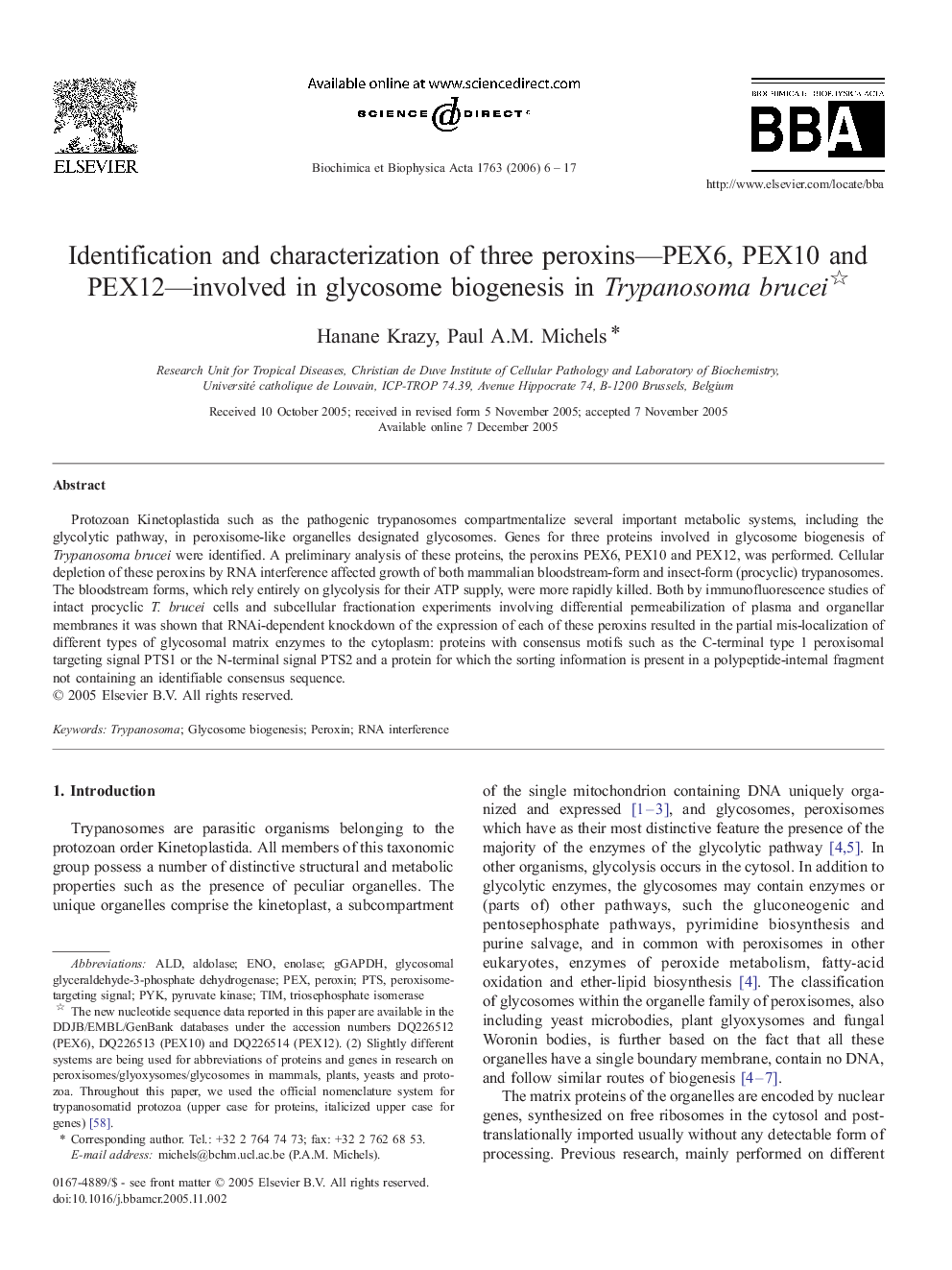| کد مقاله | کد نشریه | سال انتشار | مقاله انگلیسی | نسخه تمام متن |
|---|---|---|---|---|
| 1951720 | 1055787 | 2006 | 12 صفحه PDF | دانلود رایگان |

Protozoan Kinetoplastida such as the pathogenic trypanosomes compartmentalize several important metabolic systems, including the glycolytic pathway, in peroxisome-like organelles designated glycosomes. Genes for three proteins involved in glycosome biogenesis of Trypanosoma brucei were identified. A preliminary analysis of these proteins, the peroxins PEX6, PEX10 and PEX12, was performed. Cellular depletion of these peroxins by RNA interference affected growth of both mammalian bloodstream-form and insect-form (procyclic) trypanosomes. The bloodstream forms, which rely entirely on glycolysis for their ATP supply, were more rapidly killed. Both by immunofluorescence studies of intact procyclic T. brucei cells and subcellular fractionation experiments involving differential permeabilization of plasma and organellar membranes it was shown that RNAi-dependent knockdown of the expression of each of these peroxins resulted in the partial mis-localization of different types of glycosomal matrix enzymes to the cytoplasm: proteins with consensus motifs such as the C-terminal type 1 peroxisomal targeting signal PTS1 or the N-terminal signal PTS2 and a protein for which the sorting information is present in a polypeptide-internal fragment not containing an identifiable consensus sequence.
Journal: Biochimica et Biophysica Acta (BBA) - Molecular Cell Research - Volume 1763, Issue 1, January 2006, Pages 6–17